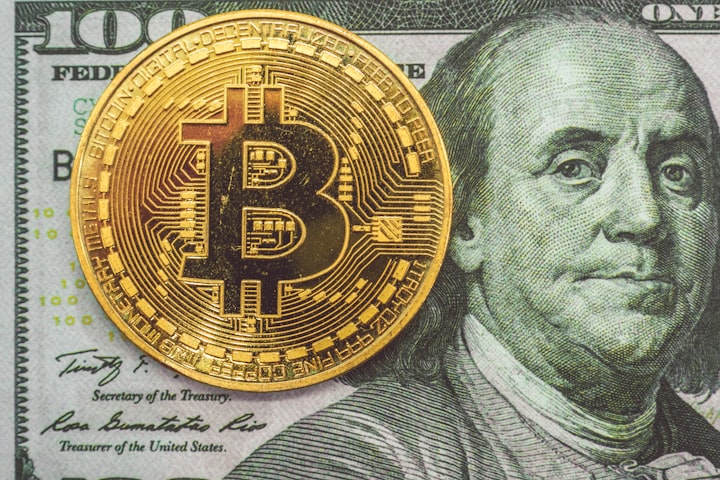Can Digital Currency Replace Paper Money?
Can Digital Currency Replace Paper Money?

CBDC uses digital tokens to serve as a tangible currency in a particular region or country. It brings security and security to digital currencies and at the same time organizes the distribution of funds outside of the traditional banking system.
Following the successful launch of medium-sized cryptocurrencies such as Bitcoin and Ethereum, a price-regulated online store, governments and central banks around the world are exploring the possibility of creating their own digital currencies, also known as digital central bank currencies. The rise of Bitcoin, Ethereum, and thousands of other digital currencies available in electronic form has led international banks to explore how the national digital currency can operate. While it is possible that Bitcoin may not replace existing currencies, the emergence of digital currencies and stable currencies has created a study of digital currency by major banks.
Real money as defined by the European Central Bank in 2012 is a type of digital currency that can be issued and controlled by its developers and can be used and accepted by members of a particular visible community. According to the ECB's Further Analysis Report 2015 of the Virtual Currency Scheme, virtual currency is a digital representation of the amount that can be issued by a major bank, credit bureau, or e-money center and can be used in some cases as a currency exchange. Digital currency, digital currency, electronic money, or electronic money is electronic money, cash, cash, or similar assets that can be managed, stored, and exchanged through a digital computer system or the Internet.
Many government officials have adopted their own different definitions of digital currencies: virtual currency, cryptocurrency, e-currency, network currency, e-cash, and other types of digital currencies. Token currencies in the form of tokens are considered cryptocurrencies, which are a class of tangible currencies. This type of currency, i.e. Electronic Payments, is called a digital currency and is made available, converted, and converted into a digital system.
Like fiat currencies, most cryptocurrencies exist in a low-level manner, which means that there is no central authority to regulate and regulate them. Not according to cleaners say Libra, the future digital currency issued by the central bank, will use blockchain technology and that will not be similar to cryptocurrencies because it will not have centralized control.
The digital yuan, a common Chinese currency converter, uses blockchain, an online ledger technology that supports digital currencies such as Bitcoin and Ethereum. Blockchain is enabled, which means people and banks can decide who can use it. Cryptocurrencies like Bitcoin are different from government-sponsored currencies.
If the US were to adopt digital currencies, it could serve as another form of monetization, with the built-in benefit of faster money transfers because it is electricity. Digital currency allows you to complete payments instantly, unlike current payment methods such as ACH or transfers, which can take days for financial institutions to verify transactions. Funds linked to digital identification systems can also be used to make cross-border transactions cheaper and more efficient.
Thirdly, countries that do not accept digital currencies may find that their central banks are losing control of their monetary policy on cryptocurrencies, whether it is a low-level initiative like Bitcoin or a local one like Facebook, which is introduced to daily currency. Finally, when cryptocurrencies make more money in terms of usage, traditional currencies can lose value without getting help. While Bitcoins can do all three financial functions, Bitcoin users should expect to be replaced by paper money over time.
Deutsche Bank, one of the world's leading financial services companies, writes in its Imagine 2030 research report that the institutions that keep fiat currencies alive will collapse, causing cryptocurrencies to rise and take over.
Like many other currencies, paper money, whether you like it or not, will one day replace the new monetary system. The future of money, the digital revolution of money in people's wallets, could strengthen the financial system that has been known for decades. Asked about the threat of Bitcoin (BTC) to management, PayPal manager Jeff Goldstein said today in an interview with CNBC that major banks could deposit paper money in digital currencies such as bitcoins and other stable currencies.
It should be noted that PayPal allows users to purchase Bitcoin (BTC) using fiat currency on the site. This week, U.S. Secretary of State Jerome Powell told U.S. lawmakers that cryptocurrencies have not yet become an effective payment method for U.S. officials and that digital currencies undermine the need for cash and stable currency. Financial technology has transformed the banking industry, but digital currencies cannot quickly replace real money, the Bank of Japan (BoJ) chief executive said on Wednesday.
Bitcoin is a real cryptocurrency and the most popular currency in the industry. According to a panel of fintech experts, it has surpassed major banks as the most common form of finance in less than 30 years. Bitcoin is a separate cryptocurrency system designed to allow online users to process transactions using digital entities called Bitcoins.
I have never used paper or physical money for 6 years and I have never had a single problem with needing a small change to pay or keep in my car, and I have never used paper money to store anything, let alone that it is much safer than a stolen wallet with cash, because it can be stolen if someone steals my wallet. of money, my bank, my PAs, whatever it is, have nothing in it and no strict codes. Nobody believes that paper currencies will lose their value over time and disappear like other currencies, but I am concerned about the centralization of the fiat currency, which gives banks and governments the power to make money for the people.





Comments
There are no comments for this story
Be the first to respond and start the conversation.